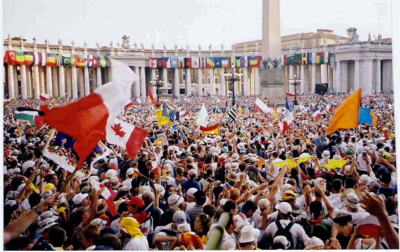by Ben Schreckinger
 Christmas is Wednesday, and as the recent (and absurd) controversy over the color of Santa’s skin indirectly reminds us, the holiday is an amalgam of various pagan and Christian traditions drawn from a diversity of times and places. In addition to the Gospel stories of Jesus’ birth, they include the hagiography of the 4th century Lycian bishop St. Nicholas, Roman Saturnalia, and the Scandinavian-Pagan Yule. It is remarkable that like a time capsule, this Christian holiday serves as a vessel in which parts of various pre-Christian belief systems, otherwise long-ago lost, stand preserved.
Christmas is Wednesday, and as the recent (and absurd) controversy over the color of Santa’s skin indirectly reminds us, the holiday is an amalgam of various pagan and Christian traditions drawn from a diversity of times and places. In addition to the Gospel stories of Jesus’ birth, they include the hagiography of the 4th century Lycian bishop St. Nicholas, Roman Saturnalia, and the Scandinavian-Pagan Yule. It is remarkable that like a time capsule, this Christian holiday serves as a vessel in which parts of various pre-Christian belief systems, otherwise long-ago lost, stand preserved.
Their preservation is testament to the tenacity of human spiritual beliefs and traditions, which often manage to outlive the environments that first produced them. Far more fragile than beliefs are human institutions, whose shelf-lives only very rarely exceed a few centuries. The birth of Jesus represents the turning point Western history between its pagan and Christian periods, which are embodied by the institutions of the Oracle at Delphi and the Roman Catholic Church, respectively. The real Christmas miracle is that between them, these two institutions represent a continuity that spans the history of Western civilization, from about 1,000 years before the birth of Jesus right up to the present day.
To examine the two side-by-side tells us something about how Western civilization has evolved: from an individualistic, agonistic world into an organized, hierarchical one. It also teaches us about how human institutions live and die, giving us reason to suspect that the church will outlive every national government currently in existence.
The Oracle at Delphi was the product of an agonistic, individualistic world. Of those that sought its prophecies it made only one demand: “Know thyself.” The guidance it offered was ambiguous and could be a double-edged sword. In perhaps the most famous myth attached to the oracle (or the most famous moment in its history, if you believe Herodotus), the 6th century Lydian King Croesus sought guidance on whether to pursue an invasion of Persia. “If you cross the river, a great empire will be destroyed,” came the prophecy. Croesus attacked, but it was Lydia, not Persia that was destroyed.
The story epitomizes the Greek relationship to the divine, at the intersection of which sat the oracle. The gods were not benign protectors of humanity, but powerful supernatural beings with all the flaws and complex motivations of people. Their word was not meant to be taken at face value. They were just another force in the cosmos that a person had to contend with, sometimes friend, sometimes foe, sometimes something in between.
Compare that to the paternalistic embrace of the Roman Catholic Church. By the time the institution had matured in the early medieval period, there were few things it wanted less than for all the members of its flock to know themselves. The parish priest was their father, and the clergy claimed the exclusive right of exegesis — no one else was permitted to interpret holy texts. It called for obedience, rather than self-knowledge. This difference, too, of course reflects the orthodox Christian relationship between humanity and the divine, in which God is a benign father.
Read more »

